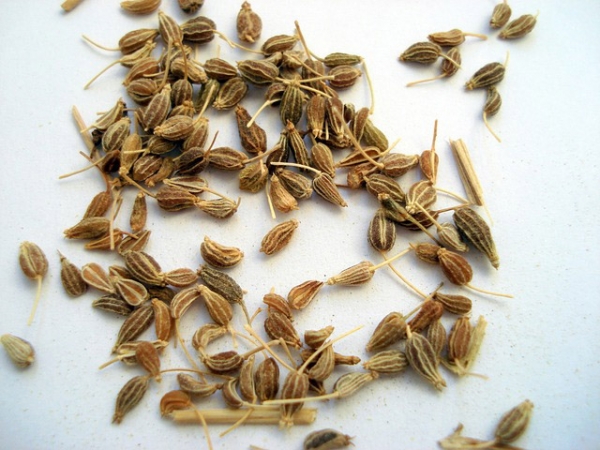Anise Essential Oil
Pimpinella anisum
Known Uses
One of its primary uses was to promote digestive health. In ancient Rome, anise was often added to a cake that was eaten after meals, while the Egyptians used the herb as an ingredient in breads. In India and certain other countries, anise is also used as a mouth freshener and digestive agent.
In high doses, Anise Essential Oil acts like a narcotic and can have a sedative effect on epileptic and hysteric episodes and convulsions by slowing down circulation, respiration and nervous response. High doses should be used with caution as it could have adverse effects, especially in children.
In normal doses, Anise Essential Oil can stimulate circulation and offer relief from rheumatism and arthritis, stimulate the secretion of enzymes and hormones, and stimulate the nervous system and the brain to be more active and alert.
It is used to clean wounds and protect against infections allowing them to heal faster. Anise Oil is a relaxant and anti-spasmodic and can alleviate cramps, coughs, aches, diarrhea, and convulsions. It also relieves flatulence and all its related problems and prevents new gas from forming.
Anise Essential Oil helps prevent colds and eliminates congestion for people with chronic conditions like asthma and bronchitis; aids in the production of breast milk; acts as an aphrodisiac; is an effective treatment for lice and kills insects. It can also kill worms found in the intestines.
History
Although Anise originated from Asia, it is also found in Mediterranean nations. The Romans introduced Anise to Europe and early settlers brought it to North America. One of its primary uses was to promote digestive health. In ancient Rome, anise was often added (together with cumin and fennel) to a cake that was eaten after meals, while the Egyptians used the herb as an ingredient in breads. Today, it is produced in Spain, France, and Russia, but also grows in the wild in other countries. Anise is often confused with fennel (Foeniculum vulgare) because both plants come from the same botanical family and have a similar taste.
Anise is also confused with another herb called Chinese Star Anise (Illicium verum), which is used to make the drug Tamiflu.
Warnings
In high doses, its narcotic effects can slow down respiration and circulation. It is poisonous to certain small animals and birds. It should not be given high doses to children. It could irritate sensitive skin and aggravates certain types of cancers caused by the estrogen hormone. Avoid use during pregnancy.
Shop for Anise Essential Oil on Amazon